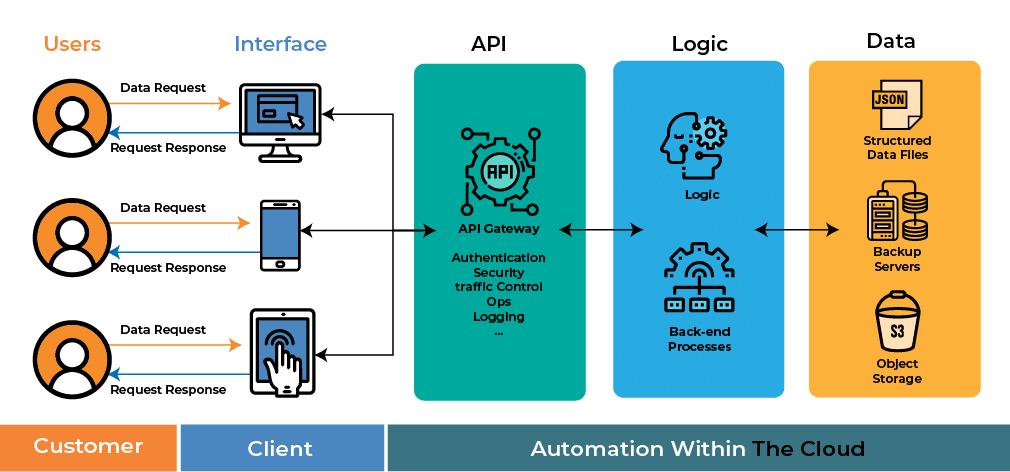Blitz News Digest
Stay updated with the latest trends and insights.
API Integration: Where Chaos Meets Harmony
Discover how API integration transforms chaos into harmony, streamlining processes and fostering seamless connectivity. Unlock the potential today!
Unlocking the Power of API Integration: A Comprehensive Guide
In today's fast-paced digital landscape, API integration has emerged as a pivotal tool for businesses seeking to enhance their operational efficiency and expand their capabilities. By connecting various software applications through Application Programming Interfaces (APIs), organizations can automate workflows, streamline data exchange, and improve overall productivity. This comprehensive guide aims to unlock the potential of API integration by exploring its key benefits, best practices, and the future of interconnected systems.
The advantages of API integration are manifold. Firstly, it facilitates better collaboration among disparate systems, allowing data to flow seamlessly between platforms. Secondly, businesses can achieve significant time savings by automating repetitive tasks and reducing manual data entry. Additionally, integrating APIs fosters innovation, enabling companies to leverage third-party services and functionalities that can enhance their own offerings. To successfully implement API integration, organizations should adopt a strategic approach that includes thorough planning, robust security measures, and continuous monitoring to ensure optimal performance and reliability.

7 Common API Integration Challenges and How to Overcome Them
API integration can significantly enhance the functionality of any application, but it often comes with its own set of challenges. One of the most common issues faced during this process is data inconsistency, where different systems may use different structures or formats for the same data. This can lead to confusion and errors. To mitigate this, it's essential to implement a reliable data mapping strategy that ensures all systems understand the data being exchanged. Besides, utilizing API management platforms can help streamline the process by providing tools to standardize data formats.
Another prevalent challenge is authentication and security. Ensuring that only authorized users and applications can access the API is crucial. Often, APIs rely on various authentication methods, such as OAuth or API keys, which can be complex to manage. To overcome this hurdle, it is vital to establish a clear authentication framework and regularly review the security measures in place. Additionally, incorporating rate limiting can protect your API from abuse and keep it stable for legitimate users.
What is API Integration and Why is it Essential for Modern Businesses?
API integration refers to the process of connecting different software applications through their APIs (Application Programming Interfaces), allowing them to share data and functionalities. This seamless connectivity is crucial for modern businesses, as it enables the automation of workflows and enhances the overall efficiency of operations. By integrating various systems, organizations can break down data silos, ensuring that information flows smoothly between departments and applications. In a world where speed and accuracy are vital, API integration allows businesses to respond quickly to market changes and customer demands.
Moreover, the importance of API integration extends beyond mere operational efficiency. It empowers businesses to enhance customer experiences by providing personalized services and recommendations based on real-time data analysis. For instance, e-commerce platforms can integrate payment gateways, inventory management, and shipping services through APIs, creating a unified shopping experience for customers. Additionally, as businesses increasingly adopt cloud-based solutions, API integration becomes a critical component in ensuring all systems work together, facilitating scalability and innovation in a highly competitive landscape.